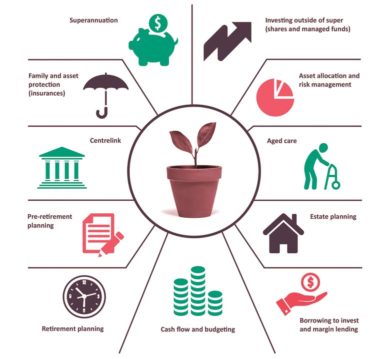
The back up plan for expats: Have you got yours?
How long have you lived the expat life? Do you worry about what might happen if anything goes wrong? Do you have a plan on how to mitigate the risks that expats may be exposed to whilst on assignment?
Are you concerned about any of the following:
- Job loss
- Lack of new job prospects within the company
- New assignment in a high-risk region
- Local package/no family benefits/family not welcomed to join
- Failed assignment
- Failed relationship
- Inability to repatriate with employer
- Physical/mental health risks/illness
- Injury/disability/death

Have you thought about all the above possible case scenarios or any others? How would that affect life as you know it in a foreign location?
I am not trying to worry you here. However, the reality of moving overseas in an expat assignment creates a whole new range of scenarios that we need to be aware of. Added to this, is the potentially vulnerable position that expat partners put themselves in when they take career breaks and become financially dependent.
It is therefore important for expats in Thailand, and other countries, to acknowledge that life goes wrong, and also that with a little bit of intentional planning we can set ourselves up for riding through those low moments with as much control and certainty as possible. Having a back up plan to ensure that our loved ones and life in general is taken care of in the event that anything goes wrong during an expat assignment must be a priority to prevent us from falling victims to unfortunate life events.

Personally, as well as in my years of experience working with expatriates and leaders from all walks of life, I know how much these worries play in our minds. In most cases, trailing spouses leave their careers behind to follow their partners. They worry that if anything goes wrong, they won’t be able to support themselves, their family and their lifestyle. I have witnessed many instances in which expat families have suffered a loss of varying degrees, and the devastation that it leaves behind for those who are left to pick up the pieces and continue to live life to the best of their ability.
So is there anything that can be done to alleviate such times? Whilst there are areas where you many not be able to anticipate or exert any control over, there are also plenty of opportunities and options for you to create a sense of security and certainty if anything was to happen.
So allow me to share with you some of the best strategies to set in place to help you avert risk and set you in a comfortable position in the event that misfortune strikes:
- The very first step of the process is to actually have an open, candid and transparent conversation with your partner. What happens in the event of death or divorce? Brainstorm some ideas, and go through different case scenarios. It is important to share your opinions and expectations, and to reach consensus to an action plan that you both agree on.
- Speak to your employer. Ensure you have an understanding of what the company will do to mitigate some of the risks, and how they will contribute in these circumstances. Making assumptions on the company’s behalf is a very risky move, so do the homework and find out exactly what is covered so that you can build on whatever gaps you feel need to be taken care of.
- Get expat financial advice. There are so many things to take into account when considering your financial situation as an expat. Speak to a financial adviser who specialises in expatriates to help you create a successful financial plan and build an investment portfolio to ensure you meet your financial goals, and let them make your money grow for you.
- Get life and disability/income protection insurance. Protecting your ability to earn an income should be considered a priority to ensure your family could cope financially if you or your partner suffers disability or death whilst you are overseas. This is a worthwhile, good value option to put your mind at rest.
- Make or update your will – consider specifics such as who will look after your children in the event that anything happens to you and discuss with all parties involved for commitment. Wills for expats are a difficult subject to write about because they are difficult to define. Laws which govern an expat’s state will be different depending on their home nation and on the laws of the country in which they currently reside, so do some homework and have your will updated accordingly.
- Create a power of attorney document and give it to a trusted friend or relative who can act legally in your interest, if necessary, whilst you are abroad. By doing this, the person you assign will be able to handle financial matters, make healthcare decisions, or care for your children if you become incapacitated. This can also be a handy option to have if you own assets in your home country and would like someone to manage and make decisions on your behalf whilst you are away, without having to be present.
- Share all relevant information with each other. Keep informed on the state of affairs (bank accounts, assets, advisor’s contact details, etc). Keep a private document – updated every 6 months with details on all bank accounts, passwords and assets, together with any other relevant information, so you can access if in need. Everyone should be aware of the back up plan.

- If able to, and if it is not covered by your employer, ensure you have a full comprehensive health insurance plan that covers the whole family. Consider including evacuation, outpatient and inpatient fees, hospital stays, and repatriation. Depending on your circumstances – i.e. your home and host country – you may be eligible to free or subsidised healthcare. If you don’t have any cover, the costs of even minor routine medical treatments can quickly mount up over time.
- If able to, create an education savings account to help pay for your children’s education in the future. Whether your employer is fully or partly financing your children’s schooling fees, the costs associated with good English speaking schools, rising university fees, boarding fees, etc will no doubt add up. Allocating a monthly amount for your children’s education when they are young will help ease these costs when you really need them.
- Create a retirement account to set aside some extra money for the future. When working and living abroad, you will need to consider whether to continue to pay personal contributions to your personal pension back home, whether your host country will allocate a pension for you, how much your employer will contribute towards retirement costs, etc. As an expat, the rules around pension get more complicated, so if you are able to, put some money aside into a retirement account to ensure you have a comfortable life when you stop working.
- Additionally, you must set aside some of your monthly income to serve you as a safety net and a contingency plan. As an expat, things may change quickly and you may need to tap into this money to get you through a difficult period, paying a house’s deposit or school fees, legal fees, etc. In volatile environments specially, we must be prepared to evacuate, or access resources for transport and personal costs at any given emergency, such as natural disasters, political disorders, terrorism, etc.

- Have an independent bank account in your own name and your own credit card, along with some contingency money to pay for administrative, legal representation and any other costs. Let’s be real. Relationships break down, accidents happen, and particularly for the accompanying partner, it can lead to a period where in some countries, are unable to tap into their own assets and finances. So be protected.
- Have a nest – a place to call home. So that if you need to flee your current location, you have a base and a place to safely get to. If possible, don’t rent it out, it needs to be available to use as you see fit. If this is not an option for you, discuss available options, whether family and friends, and again discuss this with those involved to reach consensus.
- If you are not working and earning an income, work on upskilling yourself, stay in touch with your industry, stay connected with previous employers, attend industry related networking events and conferences, etc. Keep your certifications updated and figure out ways in which you can stay current in your field; you may be able to do some voluntary work or do distance learning to keep it up to date, so that if need to you may get back to your profession.
- If you are interested in working as a trailing spouse, there are many ways in which you can set yourself up to earn an income doing what you love. Nowadays the opportunities are endless, so do some research. Some examples of this would be freelancing work, online business, becoming an author, etc.
- Earning revenue is a key part of this plan. Understand what is available in both your home and host country. If possible, create some passive income opportunities so that if your main source of income stops, you have some additional resources aiding you during the adjustment period. Examples of this would be property rentals, selling an ebook, online products or courses, blogging and getting affiliate links, purchasing high dividend stocks, creating an App, selling professional photos online, etc. Be creative and don’t limit yourself here.
- Network. For expats, networking can help to replace or rebuild the support systems that have been left behind in the home country, and helps expats establish themselves in their host country. Both business and social networking are important for sharing resources and a healthy way to meet others and form social relationships that may prove crucial during challenging times. During your expat assignment, keep an active presence in expatriate circles. You never know, those connections may be key in helping you transition out of an unfortunate situation. And likewise, be there for close connections.
- Visualise different case scenarios and brainstorm ways in which you could handle these situations. You will be conditioning your brain to manage these circumstances if they were to happen, allowing you to deal with them in a more effective and productive way if and when it happens. Ask yourself: “What’s the worst that could happen?”, followed by: “How could I best handle this scenario if I had all the resources that I need?”. Then, work on creating those resources, should you need them in the future.
- Ask for help. We all need it, and it is perfectly OK to ask for it. Talk to family and friends, or better yet, work with a professional to help you set yourself up for success and create en empowering mindset that will have you pushing through limitations irrespective of the situation. Whether coaching, counselling, financial planning, legal services, etc, there is an array of professional services available to help you create what you need.
- Above all, develop a flexible mindset to be able to adapt to what the assignment may throw at you. Your ability to stay open minded and your willingness to try new ways of doing things will go a long way when it comes to securing a more certain future. Things may not go according to the original plan, and having flexibility to adjust to what’s required will save you a lot of hassle.

So, how many of the above have you already got in place? Which ones do you think you need to work on setting up? What else can you think of that will help you stop worrying and live in the moment knowing that you have taken care of things as much as you can?
If you still find yourself worrying, then ask yourself, “what is it specifically that I am worrying about, and what can be done to get rid of it?”.
With some intentional planning, you may be able to put your worries to rest and enjoy all the incredible perks that come with an expat assignment. So do some work on it now and put it out of mind to enjoy life fully.
Here’s to your success!
Isabel

Isabel Valle is an accredited ICF PCC Coach, Leadership Mentor and Facilitator currently based in Bangkok. Isabel has held senior positions within the hospitality industry in countries around the world, and facilitates a holistic approach to leadership, growth and success. She specialises in virtual coaching and online mentoring that inspires action and helps leaders from all walks of life around the globe bring their gifts to life to help them create professional excellence and personal fulfilment.
More information available on www.isabelvalle.com.





